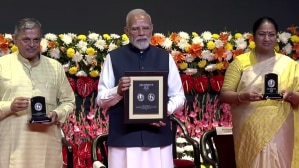Clearing the heir
Tatas succession planning is refreshingly professional....
Nineteen years after his wild-card takeover from J.R.D. Tata,Ratan Tatas stint as chairman of Tata Sons the holding company of the highly diversified Tata Group has been acknowledged as wildly successful. Taking a $4 billion group into the $70 billion bracket,he spun yarn into gold converted an essentially Indian brand into a name that the world has to reckon with. Whether it was overhauling internal management at Tata,or packing a punch into the worlds cheapest car or buying up luxe brands like Jaguar,Ratan Tata has steered the Tata Group with admirable confidence and panache. The person who takes over from him must possess at least a part of that drive.
The succession strategy at Tata Sons looks heartening begun a good two years before Ratan Tata retires,it appears impeccably professional with a five-member search committee (with board representation,but not Ratan Tata himself) that includes members from two key Tata family trusts and an outsider.
In India,it is taken for granted that the top seat in many businesses will be filled by the next member of the promoters family. But succession planning is a delicate affair look at Reliance,or even the tension over continuity at Apple when Steve Jobs lets go (despite it not being a family-controlled corporation). Tata Sons could become Indias own case study of how to do the handover right. Most of its substantial shareholders are not even part of the family (Ratan Tata himself owns about 1 per cent in stake). More than 66 per cent of the equity is held by philanthropic trusts endowed by different members of the Tata family. This dilution of ownership by the promoter family ensures that they are less invested in transition decisions,allowing it to be managed professionally. Given Tatas symbolic and real importance to Indian business,the search should be interesting.



- 01
- 02
- 03
- 04
- 05




























